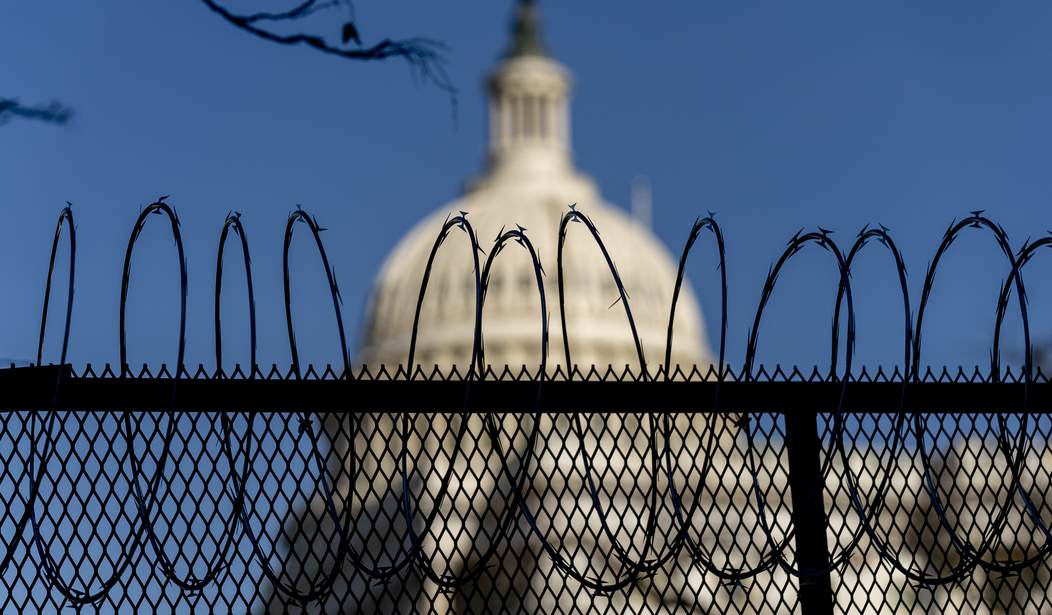April 19, 1995 started as a normal spring day. Shops opened, kids walked to the bus stop, and adults bustled off to the office. Hundreds of them went to work at the Murrah Federal Building that morning, some dropping their toddlers off at an on-site day care center. At 9:02 a.m., Oklahoma City changed forever.
Initial suspicion for the deadly bombing fell on Saddam Hussein in Iraq. He had threatened retaliation for his historic defeat in the Persian Gulf War, and he provided safe harbor to terrorists. A routine patrol stop north of Oklahoma City, however, nabbed Timothy McVeigh. The ensuing investigation into the bombing revealed the depths of his connections to the “patriot” or militia movement.
Militias grew rapidly in the early 1990’s, for many reasons, among them the Clinton Administration’s “assault weapons ban” that was seen as a direct assault on the Second Amendment. Two events would accelerate that fear – the 1992 Ruby Ridge standoff, and the siege of the Branch Davidian compound that ended in a firestorm on April 19, 1993. In both cases, weapons possession was key.
The militia movement caught on like a prairie fire, but almost nobody noticed. Local police departments were often aware of what the local militias were doing, but many felt they couldn’t conduct surveillance due to free speech concerns. Militia members threatened government officials and occasionally deployed pipe bombs. But information sharing across police departments, especially across states, was not very efficient. So when Timothy McVeigh had interactions with the police in Michigan, Arizona, and Oklahoma, there was nobody to connect the dots.
Recommended
Connecting the dots is much easier in today’s world. Many of the Capitol rioters took selfies and posted photos to social media, making it possible to locate them after the fact. But the public still does not know much about today’s right wing groups. Few people have heard of the Proud Boys or the QAnon conspiracy theories, and fewer have heard of the Three Percenters or Oath Keepers. Law enforcement agencies, watchdog groups, and a few journalists are paying attention for the rest of us.
But this begs the question of whether the January 6 riot was an intelligence failure. Could authorities have reasonably predicted that there would be violence on that day in Washington, DC, and taken measures to prevent it? Certainly the FBI and other law enforcement agencies had been paying attention. They had enough actionable intelligence to arrest the head of the Proud Boys entering Washington, DC just days before the January 6 riot.
In fact it does seem that additional intelligence was available but not acted upon. We should expect that Congressional investigations and perhaps a commission will delve into the roots of the failure to act on the information.
Thankfully nobody in today’s far-right or far-left movements has acted – so far – to follow in McVeigh’s footsteps. Antifa attacks in Portland and elsewhere have come close to being mass casualty incidents. Some Capitol rioters brought nooses, zip ties, and Molotov cocktails; those had malign and perhaps murderous intent. While initial images of the riot suggest a poorly organized assault, investigators are finding evidence of planning and collusion.
Colorado Representative Ken Buck has introduced legislation to increase the penalties for inciting and organizing riots, which would target both Antifa and rioters like those on January 6. Of course Timothy McVeigh acted with the help of only a few accomplices; numbers are not everything.
The challenge today is similar to that in the 1990’s – how to reduce extremism without shutting down free speech. We do not need a Ministry of Truth, as Representative Alexandria Ocasio-Cortez seems to want. The political philosopher John Stuart Mill argued that we need to permit even the vilest of speech, so that we can bring it into the light and expose it.
We do not need algorithms and biased content moderators to judge every social media post in Orwellian fashion. We should consider what technology tools are appropriate for law enforcement to use to protect public safety, while protecting free speech. The assault on the Capitol must never be repeated.
The answer is not only with law enforcement methods. We the people need to be the solution. We need to pay more than lip service to the idea of toning down our political rhetoric. Let’s be realistic, though. Washington will not change its tone until we change our tone, down on the street and out in the countryside, at home and on social media.
The Oklahoma City Memorial is marked by these words: “We come here to remember those who were killed, those who survived and those changed forever. May all who leave here know the impact of violence.” January 6 was a wakeup call. Will we be changed forever, or only until the next riot?
Dr. Tom Copeland is a Professor of Politics at Colorado Christian University and Director of Research at the Centennial Institute. He is the author of Fool Me Twice: Intelligence Failures and Mass Casualty Terrorism.

























Join the conversation as a VIP Member